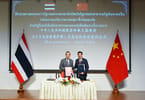For holiday makers Spain has long been the land of sun, sea and sangria. Now that trusty formula is wearing thin, and faced with an unprecedented drop in foreign visitors, Spanish tourism authorities are taking drastic action. The land of the Costa del Sol is being rebranded as a destination for those chillier months, under the counter-intuitive, if slightly uninspired, slogan “Winter in Spain”.
“It’s a proposal by the government to attract people outside the usual summer holiday period. We are renowned for our sun, and that sun shines all year round,” a Tourism and Industry Ministry spokesman said today.
Details of the new strategy were not immediately forthcoming. “They are ideas, proposals at this early stage, work in progress,” was all the tourism mouthpiece would say, promising more details following a brainstorming meeting in Seville at the end of September. “Then we’ll be in a position to mount our international campaign for winter holidays in Spain.”
Which may be cutting things fine, in view of the speed of Spain’s economic downturn. Alarm bells started ringing last month: numbers of tourists from abroad dropped 8 per cent in the peak month of July compared with the same period last year. In particular, the Swiss, French and Italian tourists stayed away, with top Spanish destinations of Catalonia, Andalusia, the Canary Islands, Valencia and the Balearics hardest hit by the downturn.
And there was more bad news at home. Spaniards, traditionally fiercely loyal to their own country’s tourist attractions, have cut holiday spending by 30 per cent, and authorities say trends show “signs of instability”.
“The drums of crisis have started to roll,” explained Jose Luis Zoreda, vice-chairman of the Alliance for Tourism Excellence, Exceltur, which represents leading hoteliers, says. “The outlook is stormy. There’s nothing to indicate that the rest of the year will compensate for the fall in business that occurred in July,” Mr Zoreda said. “We need urgent measures to prevent us suffering the same fate as the construction industry, big financial injections to reconvert our deteriorated tourist areas.”
The government has pledged 500m euros to update tatty hotels and resort installations, but the effects won’t be felt until next year. Hence the “Winter in Spain” wheeze. The slogan conjures up all sorts of imaginative ideas that might attract the out of season visitor: blockbuster art shows, sun-drenched snow sports, cultural visits to ancient cities and historic monuments, gastronomic tours of some of Europe’s finest eateries and most spectacular wineries.
But so far, according to a ministry statement, the plan seems more prosaic. Chief among its aims is to attract elderly European holidaymakers to fill hotels formerly occupied out of season by Spanish pensioners on heavily subsidised package tours. That programme, under which legions of retired Spaniards pay less for extended seaside winter holidays than the cost of heating their own homes, has for years brought joy to millions and maintained off-season employment in summer resorts. But this year, with the credit crunch biting, Spaniards are increasingly staying at home.
Tourism, which accounts for some 10 per cent of GNP, has long been the motor of the Spanish economy, although it was overtaken in recent years by the country’s spectacular construction boom. But now with cranes idle, building firms bankrupt and construction workers on the dole, the spotlight has swung back to tourism as the main hope to keep the economy afloat.
Many foreign tourists, put off by the concrete jungles that have disfigured Spanish beaches and erstwhile rural hideaways, have gone instead to booming destinations in Turkey, North Africa and Egypt, which are 30 per cent cheaper, Mr Zoreda says, and often have more modern installations. So Spain is now casting its net wider in pursuit of prosperous new visitors, and plans to set up tourism offices in Russia, China and India. Holidaymakers from the traditional European markets, who have in their millions built Spain’s tourism industry from nothing over the decades, are now, it seems, either wearying of what Spain has to offer, or skint.
WHAT TO TAKE AWAY FROM THIS ARTICLE:
- But now with cranes idle, building firms bankrupt and construction workers on the dole, the spotlight has swung back to tourism as the main hope to keep the economy afloat.
- The land of the Costa del Sol is being rebranded as a destination for those chillier months, under the counter-intuitive, if slightly uninspired, slogan “Winter in Spain”.
- Tourism, which accounts for some 10 per cent of GNP, has long been the motor of the Spanish economy, although it was overtaken in recent years by the country’s spectacular construction boom.






















